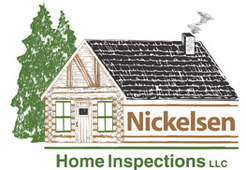We are coming off of the summer, our driest time of the year, and this year's dry period was also marked by the longest streak of no rain in the (recorded) history of SW Washington and NW Oregon (don't you miss it already?). As we move into the colder season a lot of people will be moved to buy and/or install foam foundation vent blocks to "keep the cold air out of the crawl space", a reasonable idea, but one that we don't recommend in most cases. The vents around your foundation (assuming that you have a home with a crawl space) are intended to allow your crawl space to breath. Your reasonable idea is that if you block the crawl space you will be keeping the cold air out from under the home, thus keeping pipes from freezing and keeping the floors warmer--i.e., you are attempting to be energy efficient. In this area of the country our winters are marked less by cold air and snow than they are by rain, and lots of it! That rain gets the soils wet, which, in most homes, leads to moist grounds under the home. You want that moisture to go out of the crawl space and you want the crawl space to breath, which is what the foundation vents are for. As such, while a reasonable idea (i.e., to block the vents), one is actually "choking" the crawl space, keeping it from breathing and ejecting that moisture (to the extent that it can) via the foundation vents. So, in principal, we strongly recommend that you keep your foundation vents unblocked year round, especially (ironically) in the winter. Now to the exceptions. Let's say that you have an older home in the area. Say it is from the 1920s through the 1960's and your crawl space has no insulation on the piping and no insulation under the main level floor (what would be above you if you were crawling under the home). Now, let's also say that you have a "dusty dry" crawl space (which is somewhat common in this area on older ranch style homes in this area). If THAT is the case, then you might consider installing foundation vent blocks. But I would only consider it if you had that senario: 1) dry crawl space year round (i.e., the dirty is "dusty dry"); 2) you have no insulation and/or have no insulation on the piping). Ideally you would consider adding insulation to both the floor and the piping, but that we will save for another post. Have a great week and a Happy Halloween! - **** Nickelsen Home Inspections, LLC |360.907.9648 | Like our Facebook Page atwww.facebook.com/pdxinspector |www.nickelsenhomeinspections.com
Rainmaker
83,808
83,808
NICKELSEN HOME INSPECTIONS - Vancouver WA Home InspectorPO Box 872862Vancouver,WA98687
local_phone(503) 502-1495
smartphone(360) 907-9648
Contact The Author
Recent Posts
Home Improvement
about 11 years ago
Home Buying
over 11 years ago
Home Improvement
about 12 years ago
Additional Information
Nickelsen Home Inspections, LLC is proud to be performing home inspections in all of the Clark County Washington and the Greater Portland, OR and Vancouver, WA metro areas. We specialize in offering a complete inspection process, from the inspection to the report, on site and in an expedient yet thorough manner. Prior to taking on the form of Nickelsen Home Inspections, LLC in 2005, Inspection Consulting was one of the original home inspection companies in Clark County. We have collectively performed over 10,000 home inspections in the last 12 years, and we put all of this experience to work for you.
--
If you need a home inspector in Vancouver WA, or anywhere in SW Washington and NW Oregon, Nickelsen Home Inspections, LLC will offer you the most experience, the best service, and we guarantee it!
Call Today:
WA: 360.907.9648
OR: 503.502.1495
Toll Free: 1.866.284.3151

Comments (0)Subscribe to CommentsComment